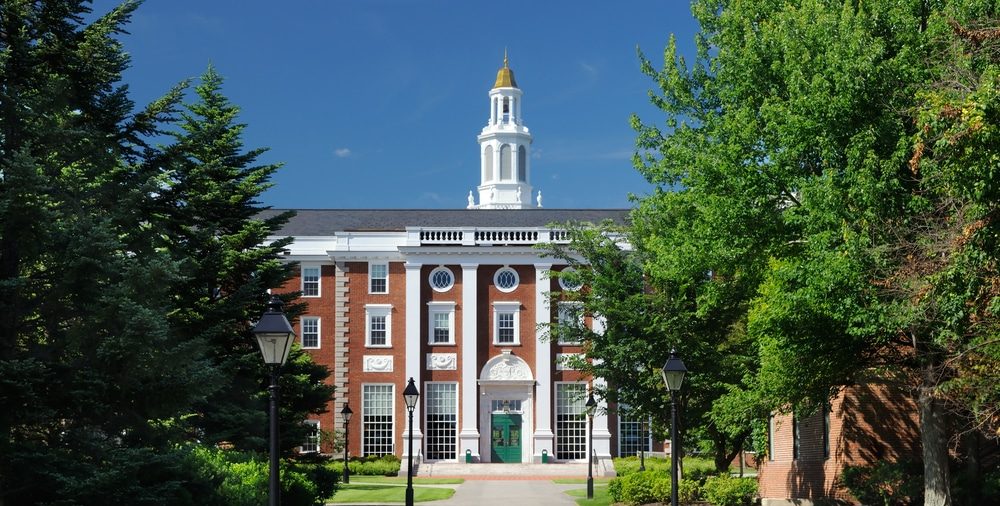Harvard Students: A Look at Who’s Enrolled
Harvard University, a member of the prestigious Ivy League, is renowned globally for its academic excellence, rigor, and diversity. This piece offers an insightful glimpse into the demographics, backgrounds, and activities of those currently enrolled at Harvard and aspects of Harvard’s rigorous admissions process and financial facets of study.
Understanding the Harvard Student Body
Understanding a university’s student body is crucial for those wishing to join the institution. However, describing the “average” person enrolled at Harvard is challenging, considering the unique individuals who walk the halls and fill the classrooms. Hence, we attempt to understand the student body through different lenses.
When delving into the demographic breakdown of Harvard students, it becomes evident that Harvard University ensures a diverse student body, aiming for full representation from all walks of life. The undergraduate population is almost evenly split between males and females, fostering a balanced and inclusive learning environment. Regarding race and ethnicity, the student body is a colorful melting pot, with students from various backgrounds and cultures coming together to form a vibrant community. Harvard takes pride in welcoming many international students, who contribute to the global perspective and cross-cultural exchange that enriches the campus experience.
Academic Interests of Enrolled Students
Being enrolled at Harvard offers students a wide range of academic pursuits. While the university is renowned for its rigorous programs in various disciplines, specific majors have become particularly popular among enrolled students. Economics, Computer Science, Applied Mathematics, and Social Science are among the most sought-after majors at Harvard. However, the academic landscape at Harvard is not limited to these traditional fields of study. Students increasingly explore multidisciplinary studies that meld divergent fields, highlighting Harvard’s academic creativity and commitment to fostering intellectual curiosity.
Harvard encourages students to think outside the box and pursue interdisciplinary approaches, allowing them to combine their passions and interests in unique ways. This emphasis on multidisciplinary studies broadens students’ perspectives and equips them with the skills to tackle complex real-world problems that transcend traditional academic boundaries.
Geographic Origins of Harvard Students
Harvard’s student body is not only intellectually diverse but also geographically diverse. Students enrolled at Harvard do not just come from across the United States but also from every corner of the globe. This global representation contributes to the richness of the academic environment, as students bring unique cultural and regional perspectives. Whether it’s a student from a small town in the Midwest or a bustling metropolis in Asia, each individual adds a distinct flavor to the Harvard experience.
Interacting with peers worldwide allows Harvard students to broaden their horizons and develop a global mindset. It fosters cross-cultural understanding, empathy, and collaboration, preparing students to thrive in an increasingly interconnected and diverse world. The various geographic origins of Harvard students enhance the academic discourse and create a vibrant and inclusive community where students learn from one another’s experiences and perspectives.
The Admissions Process at Harvard
The Harvard admissions process is notoriously competitive. The university seeks students with academic proficiency, leadership, and a strong work ethic. But just as importantly, they want students with a unique perspective.
When it comes to the admissions process at Harvard, there are several criteria that applicants need to meet. While Harvard has no minimum GPA or standardized test score requirement for admissions, accepted students typically rank highly in their high school classes and perform exceedingly well on tests. However, these numbers are just part of a holistic review process.
Harvard takes a comprehensive approach to evaluating applicants. They consider academic achievements, extracurricular activities, personal essays, recommendation letters, and interviews. This allows the admissions committee to better understand each applicant and their potential to contribute to the Harvard community.
Criteria for Admission
While academic performance is essential, Harvard looks beyond grades and test scores. They value qualities such as intellectual curiosity, creativity, and a commitment to positively impacting society. Students enrolled at Harvard are academically accomplished, passionate about their interests, and willing to challenge themselves.
Harvard also considers an applicant’s background and experiences. They understand that not all students have the same opportunities, and they think this when evaluating an applicant’s achievements. They value diversity and strive to create a student body representing various backgrounds, cultures, and perspectives.
The Role of Extracurricular Activities
Extracurricular activities play a huge role in Harvard admissions. They provide insights about a student’s passion, leadership, and determination beyond academics. Hence, whether it’s excelling in a sport, demonstrating musical ability, or leading a community service project, showcasing these talents can help make an application stand out.
Students enrolled at Harvard have made a meaningful impact in their communities. They want evidence of leadership, initiative, and a commitment to making a difference. Whether starting a club, organizing a fundraising event, or volunteering at a local organization, Harvard wants to see how applicants have taken their interests and turned them into actions that benefit others.
The Impact of Legacy Status
Like many Ivy League schools, Harvard does consider legacy status —if a student’s parents enrolled at Harvard in the past— in the admissions process. However, it’s stressed that, while a factor, it does not solely determine an applicant’s acceptance.
Legacy status can provide applicants with a connection to the Harvard community and a deeper understanding of the university’s values and traditions. However, it is essential to note that Harvard also values merit and seeks to admit students based on their achievements and potential. Legacy status may give applicants a slight advantage, but it is by no means a guarantee of acceptance.
Harvard’s admissions process is designed to identify and admit students who have the potential to thrive academically and contribute to the university’s vibrant and diverse community. It is a rigorous and highly competitive process. Still, for those who are admitted, it offers an unparalleled educational experience and a lifelong connection to one of the world’s most prestigious institutions.
Financial Aspects of Harvard Enrollment
When pursuing higher education, the cost is one of the most important considerations for students and their families. Harvard University, known for its prestigious reputation, is often associated with high tuition fees. However, the university is committed to making education affordable for all admitted students, irrespective of their socioeconomic backgrounds. Let’s delve deeper into the financial aspects of Harvard enrollment and explore how students counter the costs.
Tuition and Fees
For the 2021-2022 academic year, the total tuition and fees for attending Harvard College amount to around $60,000. This figure, though substantial, encompasses more than just the cost of courses. When we factor in living costs, personal expenses, and health insurance, the annual cost of attendance rises to around $75,000.
It is important to note that Harvard’s tuition fees are just one part of the equation. The university offers a wide range of resources and opportunities that contribute to the overall value of a Harvard education.
Financial Aid Opportunities
Recognizing the financial burden many students face, Harvard has established a robust financial assistance program. Almost 55% of students enrolled at Harvard receive financial aid, demonstrating the university’s commitment to ensuring that cost is not a barrier to attending.
Harvard scholarships are primarily awarded based on financial need, helping to level the playing field and provide access to students from diverse backgrounds. The financial aid packages offered by Harvard are designed to cover tuition fees, living expenses, books, and other educational costs.
Furthermore, Harvard’s financial aid program is need-blind, meaning that admission decisions are made without considering an applicant’s financial circumstances. This ensures that students are admitted based on their merits and potential rather than their ability to pay for their education.
Economic Background of Students
Harvard University prides itself on its diverse student body, which includes individuals from a broad socioeconomic spectrum. However, it is worth noting that some studies indicate that Harvard has a higher representation of students from the top 1% of the income scale compared to those from the bottom 20%. This disparity highlights the ongoing challenge of achieving socioeconomic diversity in higher education.
In response to this issue, Harvard is actively taking steps to attract and support students from low-income families. The university offers a range of initiatives and programs to increase access and affordability for students from disadvantaged backgrounds. These efforts include targeted outreach, partnerships with community organizations, and expanding financial aid resources.
Harvard’s commitment to socioeconomic diversity extends beyond the admissions process. The university provides comprehensive support services and resources to ensure that all students, regardless of their economic background, have the opportunity to thrive academically and personally during their time at Harvard.
In conclusion, while Harvard’s tuition fees may initially seem steep, the university’s commitment to financial aid and socioeconomic diversity ensures that students from all walks of life can pursue their educational goals. By providing robust financial aid packages and actively working to attract and support students from low-income families, Harvard continues to make strides in making education accessible and affordable for all.
Life at Harvard
Life at Harvard is more than just academics. There’s plenty to be involved with with a variety of residential communities, student organizations, and support services.
Harvard University, located in the historic city of Cambridge, Massachusetts, offers its students a unique and enriching experience. Beyond the prestigious academics, Harvard provides a vibrant and diverse community where students can thrive inside and outside the classroom.
Housing and Residential Life
Most students enrolled at Harvard live on campus in one of the university’s residential houses. These houses are more than just places to sleep; they are tight-knit communities where students live, eat, study, and play together. House life is a central part of the Harvard experience.
Living in a residential house at Harvard allows students to form lifelong friendships and create a sense of belonging. Each home has unique traditions, social events, and activities, fostering a strong sense of community. From house dinners to intramural sports competitions, students have numerous opportunities to connect with their peers and create lasting memories.
The residential houses also provide a supportive environment for academic success. Students can access faculty advisors, tutors, and study groups within each home, ensuring they receive the necessary guidance and support to excel in their studies.
Student Organizations and Clubs
Harvard boasts more than 400 student organizations and clubs catering to various interests, from athletics to the arts. These organizations allow students to delve into their passions, hone leadership skills, and forge unforgettable friendships.
Whether it’s joining a student-run theater group, participating in a debate club, or becoming a member of a community service organization, Harvard students have countless avenues to explore their interests and engage in extracurricular activities. These organizations enhance students’ personal growth and contribute to the vibrant campus culture.
Furthermore, Harvard encourages students to take the initiative and create their own clubs and organizations. This entrepreneurial spirit fosters innovation and allows students to shape their experiences, contributing to the dynamic and ever-evolving campus community.
Support Services for Students
To ensure students thrive academically and personally, Harvard offers comprehensive support. This includes academic advising, mental health services, career counseling, international student services, and more. All to ensure every student’s success and wellbeing.
Harvard’s dedicated team of advisors and counselors is committed to providing personalized guidance to students throughout their academic journey. Whether choosing suitable courses, exploring career options, or seeking emotional support, students can rely on the university’s extensive support network.
In addition to academic and career-related support, Harvard prioritizes its students’ well-being. Mental health services, including counseling and therapy, are readily available to ensure students have the necessary resources to maintain their emotional and psychological well-being.
Moreover, Harvard recognizes international students’ unique challenges and offers specialized support services to help them transition to a new country and culture. From visa assistance to cultural integration programs, international students receive the necessary support to thrive academically and personally.
Overall, Harvard University is committed to providing a holistic educational experience beyond the classroom. The vibrant residential life, diverse student organizations, and comprehensive support services create an environment where students can grow intellectually, socially, and emotionally. A Harvard education is not just about acquiring knowledge; it’s about becoming a well-rounded individual ready to positively impact the world.
If you want to discuss the matter to a greater extent or inquire about college admissions, look no further! Our experts here at AdmissionSight can help you! Here at AdmissionSight, we have over a decade’s worth of experience guiding students through the competitive admissions process to get accepted to the top universities in the world. Feel free to set up an appointment today to book your initial consultation.









































